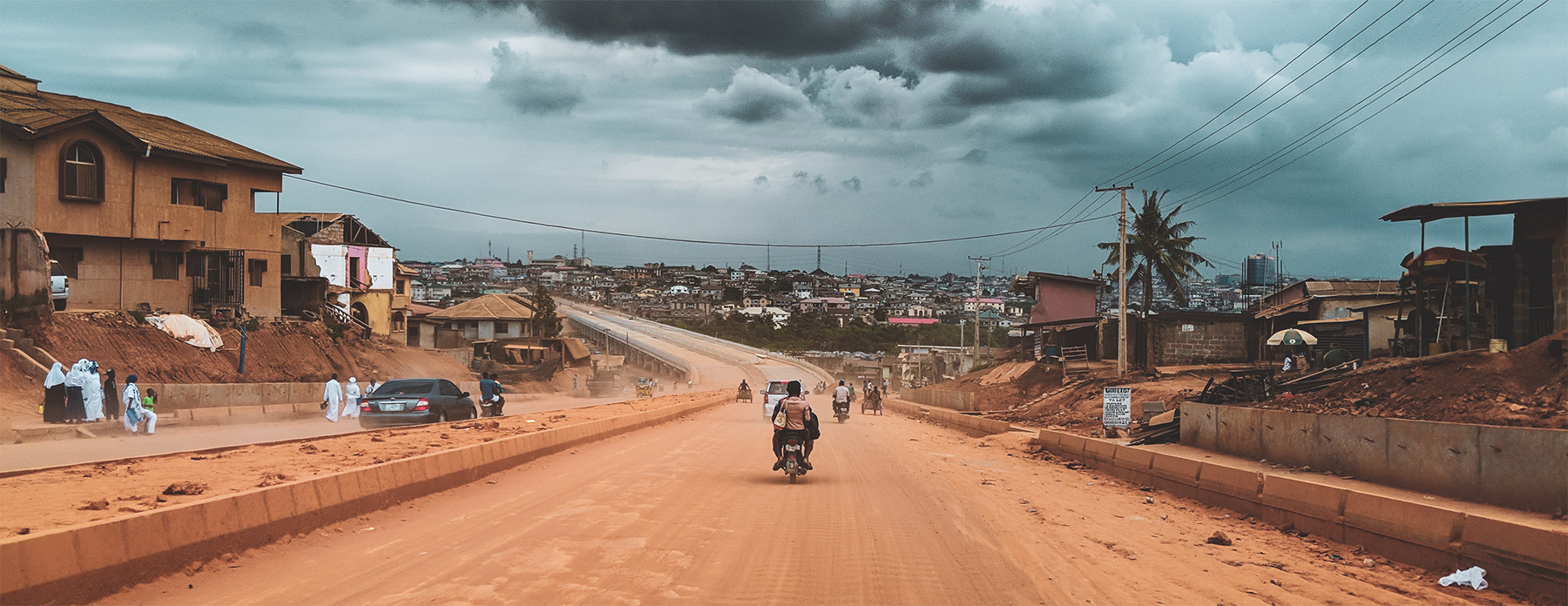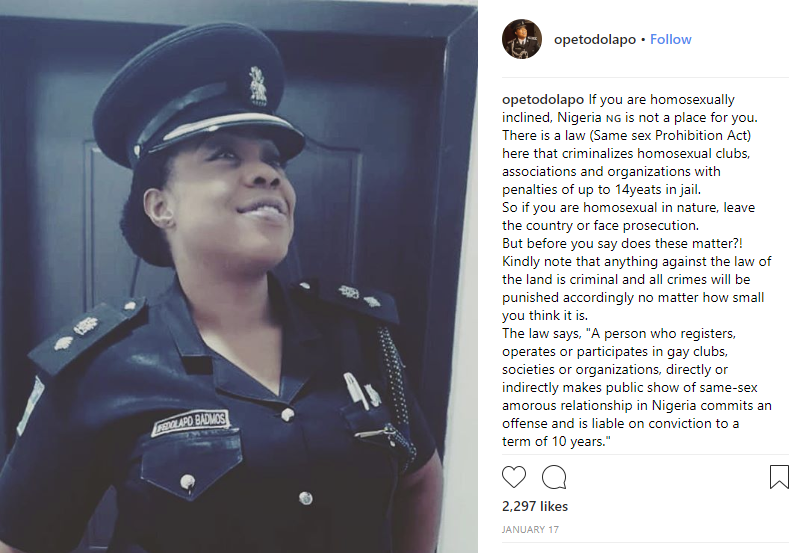


During a review of Nigeria’s human rights record at the UN Human Rights Council, Humanists International has condemned Nigeria’s treatment of minorities, particularly LGBTI people and the non-religious.
Ambassador Mustapha Lawal Sulaiman who is also permanent secretary of the ministry of foreign affairs of Nigeria, made a presentation during the final stage of the Universal Periodic Review (UPR) of Nigeria to the Council, which is sitting for its 40th session.

Dolapo Badmos, Chief Superintendent of Lagos State Police, was criticized in January for telling her 125,000 Instagram followers that gay people should “leave the country or face prosecution”
During the review process Nigeria had rejected any recommendations made by other states regarding human rights for LGBTI people. Ambassador Sulaiman confirmed this by saying that same-sex relations went against the values of Nigeria.
Humanists International’s Director of Advocacy, Elizabeth O’Casey, responded: “Let us be clear: The views that the majority of citizens happen to hold, whether because of culture, religion or anything else, do not have any bearing on the validity of the universally held human right to equal treatment and non-discrimination.”
O’Casey also raised concerns over how Nigeria treats its non-religious minority. “Nigeria’s treatment of those without religious views remains poor and engagement with humanists nearly non-existent.
“State discrimination against humanist, atheist and freethinking people is manifested in a number of ways, including: prohibitive social taboos against atheism and discriminatory prominence given to religious bodies, traditions or leaders; and those espousing non-theistic views being framed as blasphemers – a charge that comes with a prison sentence.”
The statement drew on a more detailed written statement (A/HRC/38/NGO/140) submitted to the United Nations, with the support of the Humanist Association of Nigeria (a member organization of Humanists International). Humanists had to fight for many years to gain formal recognition in Nigeria.
O’Casey’s full oral statement follows below.
40th Session of the UN Human Rights Council (25th February – 22nd March 2019)
UPR: Nigeria
Elizabeth O’CaseyHuman rights are essential for all, but for minorities who sometimes feel different from the majority, they can feel particularly precious as well as precarious.
That is why we were saddened by the state delegation’s comments on same-sex relationships during its review, i.e. that “the majority of Nigerians objected to same-sex relationships because of their deep religious, cultural and moral orientation.” This echoes – though in less strong terms – what was said a few years ago by the previous Nigerian Ambassador to the UN, Peters Emuze, in this very room when he said Nigeria “rejects unreservedly” lesbian and gay attitudes amongst its citizens and talked of an “abhorrence of LGBT rights.”1
Let us be clear: The views that the majority of citizens happen to hold, whether because of culture, religion or anything else, do not have any bearing on the validity of the universally held human right to equal treatment and non-discrimination.
This right has been trampled upon by the Same Sex Marriage (Prohibition) Act, which has served to codify homophobia, create criminal offences targeting persons based on their sexual orientation, and effectively legalize discrimination. [Since its enactment there has been an increase in crimes and human rights violations against LGBTI persons and their defenders.] We regret nothing to change this law has come out of this UPR.
Minority Nigerians who do not subscribe to the majority religions of Christianity and Islam also suffer discrimination.
Nigeria’s treatment of those without religious views remains poor and engagement with humanists nearly non-existent.2 State discrimination against humanist, atheist and freethinking people is manifested in a number of ways, including: prohibitive social taboos against atheism and discriminatory prominence given to religious bodies, traditions or leaders; and those espousing non-theistic views being framed as blasphemers – a charge that comes with a prison sentence.
We take this opportunity to strongly urge Nigeria to reconsider its rejection of the recommendation by Australia to “Protect the rights to freedom of association, expression and peaceful assembly for all Nigerians, regardless of ethnicity, religion, sexual orientation or gender identity.”3